About this blog: Padum is the largest and most important town in teh remote Zanskar Valley. So if you are planning a trip to Zanskar Valley, Padum will feature prominently in it. In this blog, we have collated the places of interests and sightseeing in Padum along with other places to visit in Zanskar Valley. Read on to know more.
Zanskar Valley is an amazing place. One visit to this remote valley was enough to make me fall in love with the place. I have been continuously singing praises about the place to whoever would listen to me. And then I was asked about sightseeing in Padum, where to visit, what to do and places to visit in Zanskar Valley. So here, I have collated a list of places that you can visit in and around Padum as well as some other places to visit in Zanskar Valley.
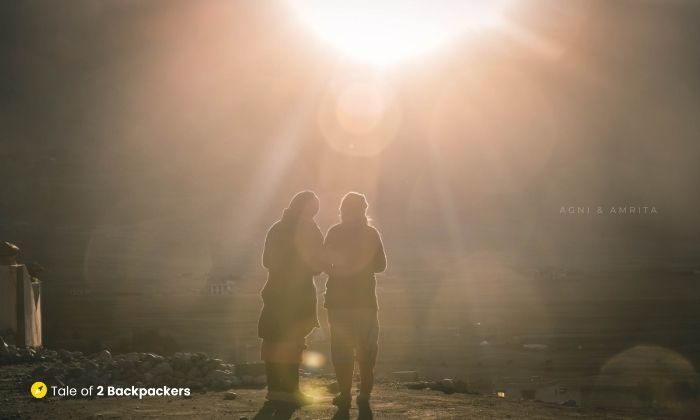
This article is dedicated to local attractions and sightseeing in Padum and around. Hopefully, this Padum Travel Guide will assist you in your Zanskar Valley trip plan and help you decide on the number of days you want to spend in Zanskar Valley.
Padum – Know the Town

Padum is the current administrative headquarter of Zanskar Valley. This small town (more like a village) at an altitude of 3670 meters is located about 240 km from Kargil.
A Brief History
Wikipedia states that Padum has been named after Guru Padmasambhava, the Buddhist saint from the 8th century. Historically, Padum was once the capital of Gyalpo of Zanskar as well. This small town has about 800 houses and is predominantly comprised of Buddhists along with a small Muslim population. The Muslim population is believed to be the descendants of the army of Zorawar Singh who had attacked Zanskar in the early nineteenth century during his trans-Himalayan military campaign.

Administratively, Zanskar is a sub-district of Kargil district in the Union Territory of Ladakh. The local people of Zanskar are in demand of a new Zanskar district for them as Kargil is at quite a distance from Padum.
Many people have been asking me where Zanskar is. They also ask whether Zanskar is in Leh Ladakh or they are separate places. So here I am clearing all the doubts regarding the location of Zanskar and Ladakh.
- Ladakh was earlier a part of the state of Jammu and Kashmir. It was established as a union territory on October 31, 2019 after the passage of Jammu and Kashmir Reorganisation Act.
- Ladakh comprises 2 districts – Leh and Kargil. Leh is also a town in Leh district.
- Zanskar is a sub-division of Kargil district. Kargil is also a town in Kargil district.
- Padum is a town in Zanskar Valley.
Places to visit in Zanskar Valley

Now that it is established Padum is the main town of Zanskar Valley, Padum will serve as the base for Zanskar tour. Padum has a number of hotels and guest houses for overnight stay as well as decent restaurants for eating. There are a few ATMs, 2 petrol pumps and a government hospital.
YOU MAY ALSO LIKE: ZANSKAR VALLEY – EXPECTATIONS & EXPERIENCES
Most of the attractions in Zanskar Valley are concentrated around Padum. So, depending on what you want to see and where you want to visit, you can decide on the number of days you want to stay at Padum. Personally, I would suggest at least 3 nights at Padum to explore the place properly without rush.
Sightseeing at Padum – Places to visit in Padum

Padum itself is a small town (you may call it a village as well) surrounded by a number of other villages. Most of the attractions in Zanskar Valley are around Padum. Some of these are in the town itself, while the others are a bit away from the town. Being a Buddhist area, there are a number of monasteries to visit in and around Padum.
So here is the list of places to visit in Padum –
1. Pibiting Gompa

Pibiting Gompa is located on a hilltop in Pibiting village. This is one monastery that can be seen from almost any corner of Padum. At Pibiting village, the Zanskar River merges with the Lungnak River and then runs towards Lungnak Valley. The monastery is a small one overlooking the Zanskar River.
Tip: Visit Pibiting Monastery just before sunset. The golden hour is absolutely gorgeous and is a treasure for photographers.
2. Zanskar Palace

The Zanskar Palace is actually the palace of the kings of Zanskar. Located in Padum village, the palace now looks like a run down mud structure. It is now being renovated into a permanent brick structure.
3. Stakrimo Gompa
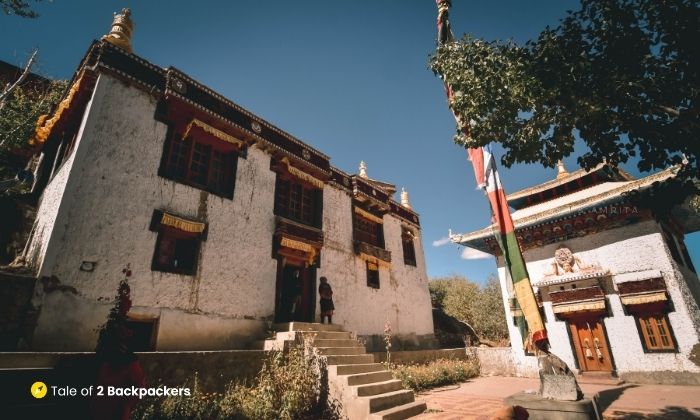
Stakrimo or Stagrimo Gompa is said to be built after the Karsha Monastery and is located about 4 km from Padum Market. The gompa is located over a small green hilltop above the old town. The prayer hall has a number of Buddhist statues and some ancient murals and paintings.
Stagrimo Gompa offers some of the best views of Padum town. There is a flight of steps behind the monastery that leads to a green clearing. From here you get a grand view of the entire Padum town, Stod Valley towards the west and some part of the Zanskar valley in the north. And if you look well enough, you can also see the Karsha Monastery located across Doda.

Spending time at the Stagrimo Monastery is quite exhilarating. We just sat there and looked at the surrounding views as the cool air caressed us. Everything was so peaceful and serene. If you are in Padum, do make some time to visit the Stakrimo Gompa and marvel at the beauty of the valleys.
4. Five Dhyani Buddha Rock Carvings

This is another interesting place in Padum. About 1km from the Padum Mosque towards the Tsarap Road, there is a huge rock on which the 5 Dhyani Buddha are carved out. It is not yet known when these carvings were made. The place is also known as Gyalwa Ringna.
The five Dhyani Buddha or Gyalwa Ringna are the pantheons of Tibetan Vajrayana Buddhism. These deities are not gods, rather different aspects of one god.
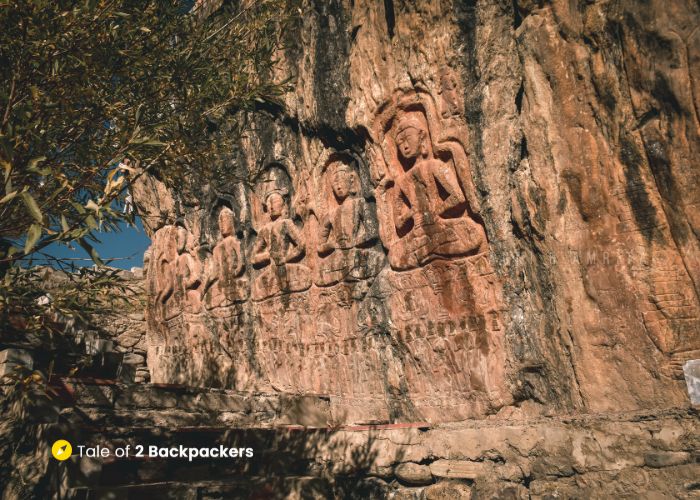
You have to walk about 500 meters from the main road to reach the rock. There are a flight of steps taking you downhill in front of the carvings on the stone. The Tsarap River flows beside the rock. This place is also quite peaceful.
5. Karsha Monastery
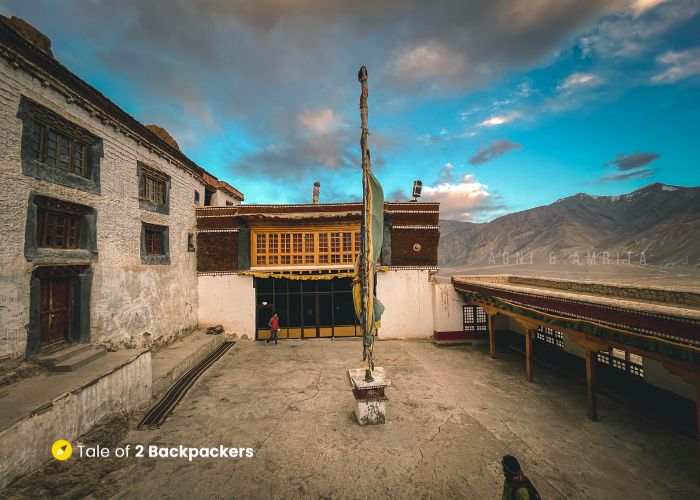
Karsha Monastery is the largest monastery in Zanskar Valley. By largest it does not mean the area, but the number of villages that are under this monastery. Quite naturally, it is also the richest monastery in the Zanskar region.
Karsha village is located about 14 km from Padum towards the Padum-Kargil route. The monastery is located on a hilltop at the end of the village.
Karsha Gompa is under the control of the younger brother of His Holiness Dalai Lama XIV. Around 150 monks reside at Karsha Gompa and the monastery houses some ancient and important Buddhist relics and thangkas.

The views from the monastery are extremely beautiful. You will get a panoramic view of the valley from certain vantage points. The monastery also houses a number of young monks who are quite friendly.
Tip: The sunset from Karsha Monastery is a grand view. Visit before sunset after visiting Sani and Dzongkhul Monastery.
6. Sani Gompa and Lake
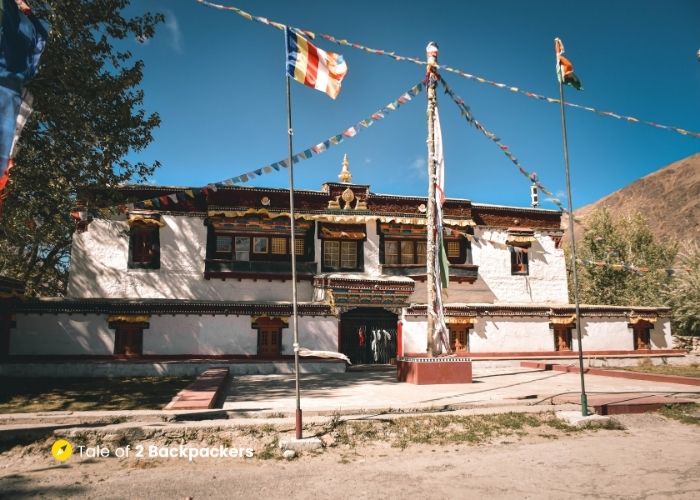
Sani Gompa is the oldest place of prayer in Zanskar Valley. Located at Sani village about 9 km from Padum town on the Kargil – Padum road, Sani Monastery belongs to the Drugpa-Kagyu order of Buddhism.
Sani Monastery is dedicated to Guru Padmasambhava who had spent almost 5 years between the late 8th century and early 9th century meditating in a cave. There is also a temple dedicated to Naropa who had also spent some time meditating here.
The most interesting structure in this Gompa is however the Kanika Stupa. This 6m high stupa is believed to be built during the rule of Kanishka I of the Kushan Empire (dating back to almost 2 CE).
Apart from the Sani Gompa, the village is also known for the Sani Lake or the Tuthot Lake. This beautiful lake surrounded by the mountains is a landmark of the village.

There is a statue of Guru Padmasambhava right in the middle of the lake. This lake is considered to be sacred among the Buddhists.
Tip: Visit Sani Gompa, Dzongkhul Monastery and Karsha Monastery in one day as they are all located in one direction.
7. Dzongkhul Monastery
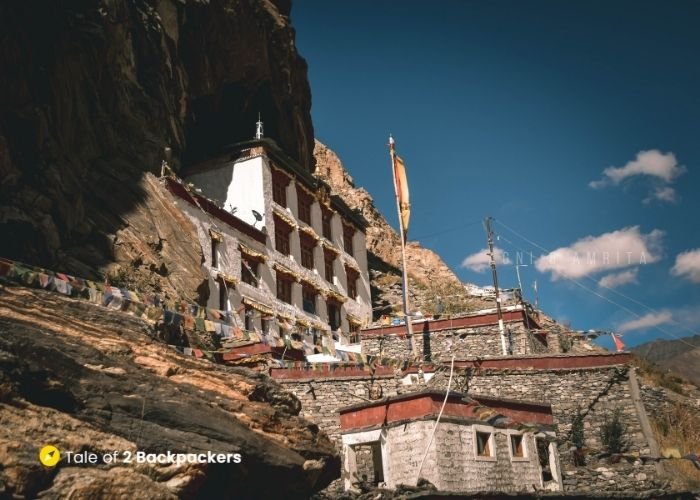
Another cave monastery in Zanskar Valley, Dzongkhul Gompa had literally taken our breath away. The monastery is located near the village of Ating in Stod Valley in one of the most peaceful places in Zanskar Valley.
Dzongkhul Gompa is located about 32 km from Padum town on the Padum-Kargil road. The monastery structure is partly embedded on the rock face of a gorge and there are two caves located inside the monastery. This cave monastery is associated with the Buddhist Yogi Mahasiddha Naropa who is believed to have meditated in the caves for two years. The cave where Naropa had meditated is located inside the monastery.

Just in front of the monastery, the valley opens up and you get an amazing view of the Umasila Pass – the mountain pass connecting Zanskar Valley to Kishtwar region in Kashmir.
Dzongkhul Monastery houses about 20 – 30 monks and has a number of sacred paintings relics.
8. Zangla Palace

Zangla is a typical Zanskari village located about 30 km from Padum town towards Lingshed. The place was once under the rule of kings and served as the second capital to Zanskar valley in the ancient time. The royal family still lives in the village. Infact, he is the keeper of the keys of the Zangla Palace.

The dilapidated Zangla Palace is located about a km from the village on a hilltop. From the hilltop, you can get a gorgeous view of the surrounding vistas and also a view of the Zangla Nunnery. The road towards Zangla is quite a beautiful one with grand views.
9. Stongdey Monastery

Stongdey Monastery is located about 21km from Padum town towards Zangla. This is the second largest monastery in Zanskar Valley and is located over a hilltop. You can get a lovely view of the monastery from the road.
The monastery was founded in 1052 AD. Being on a hilltop, Stongdey Monastery provides a panoramic view of the surroundings and believe me, the views are extremely beautiful. You might also get to see a few ibexes near the monastery, just as we saw.

Stongdey Monastery offers places for overnight stay for the tourists.
10. Bardan Monastery

Bardan Monastery is located about 12 km from Padum towards Reru (on the way towards Purne). This 17th century monastery is located amidst a scenic surrounding on a hilltop overlooking the river.
The monastery has a large prayer hall with some beautiful Buddhist statues. There is also a huge prayer wheel inside the monastery.
11. Sheela Village and Waterfall
Sheela village is located at the banks of Lungnak River at the southwest of Padum. The village is located about 8 km from Padum town and is famous for its cascading waterfall. At the base of the waterfall is a pool where you can take a dip in the summers. During the winter, the waterfall remains frozen.
Sheela village itself has a few trekking routes. You can go for an excursion to Sheela village from Padum in a day.
Other Places to Visit in Zanskar Valley
12. Phugtal Monastery

Phugtal Monastery or Phuktal Gompa is one of the most beautiful and remote monasteries located in the Zanskar and Ladakh region. It is located in the remotest corner of Lungnak valley in the southeast part of Zanskar Valley.
Till now, all the places I mentioned were near Padum. To reach Phugtal Gompa, you have to either reach Purne or Cha. Both the places are 2 to 3 hours drive from Padum. After reaching Purne or Cha, there is a trek of about 5 km to reach the monastery.

If you ask me, I would definitely say that Phugtal Monastery is the most enchanting place in the entire region. The monastery emerges from the mountain side on a part of the gorge on the Tsarap River. From a distance, it looks like a massive honeycomb. Thus, apart from being called the Cave Monastery, it is also known as the Honeycomb Monastery.
Phugtal Monastery houses around 100 monks and is still one of the remotest places to reach in the country.
Tip: If possible, stay for a night at the guest house at Phugtal Monastery. It will be an amazing experience. There are two guesthouses near the monastery for overnight stay.
13. Gumbo Ranjan
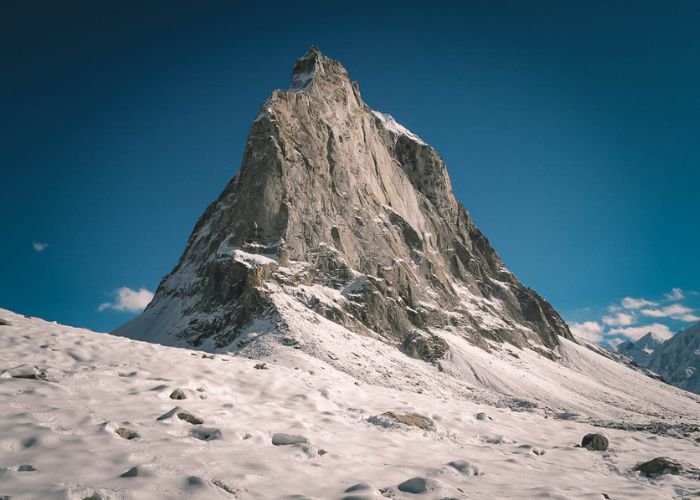
Gumbo Ranjan or Gumbok Ranjan actually means “God’s Mountain”. This is one of the holiest places in Zanskar Valley. Gumbo Ranjan is a solitary peak imposing on the landscape of Kurgiakh Valley. The locals consider the mountain as their own Kailash.
Gumbo Ranjan is located on the way towards Darcha beyond Kurgiakh Valley. If you are coming from Manali, you will come across this mountain on your way.
Conclusion
Most of the attractions and sightseeing in Padum are actually monasteries and religious places. For those not having interest in monasteries, visiting all of them can be tough. So, decide on what places you want to visit as per your interest and then finalize the number of days you want to spend at Padum. Having said that, the way to these monasteries goes through some very scenic roads which you will quite enjoy.

Padum Travel Guide (FAQs Answered)
Reaching Padum has now become easier with the opening of the roads from Manali and Leh (via Lingshed). If you want an in-depth detail of how to reach Zanskar Valley, please read our blog on the same.
Padum has a number of decent hotels and guesthouses. There are a few of them in the Padum main market area. Most of the guesthouses are basic, but provide clean and hygienic stays.
You can also stay at local homestays in the surrounding villages.
Most of the villages have a guest house run by the tourism department. But when we visited most of them were closed.
The best time to visit Padum in Zanskar Valley is between June to September. This is the time when the major mountain passes and the roads remain open.
The temperature is also pleasant during this time. The valleys turn green after the melting of snow and the entire valley looks beautiful.
You will get mobile connectivity at Padum. Only BSNL and Jio Postpaid works as of now. Internet connection is also available at Padum town. However, the mobile network becomes intermittent and patchy once you start moving away from Padum town.
Padum town has a few decent restaurants, especially in the market area. There is also a North Indian restaurant serving rice-dal in the afternoon and samosas and chat in the market area. We used to have our meals at the homestay.
Yes, there are a few ATMs in Padum town. But do not always depend on them. When you are travelling to remote places such as Zanskar, please carry cash. Also, most of the time, the internet is patchy. So, payment by UPI is not always feasible.
Do carry sufficient cash with you. Please do not go into arguments with the locals on digital payment. This part of the country is not yet fully digitalised. Infact, most of the villages do not even have proper electricity and water connection to their homes. Times are changing, but it will take another couple of years.
There are 2 petrol pumps at Padum – one towards Zangla and the other towards Kargil – Padum Road. There are no other petrol pumps on the way before reaching Kargil, Khaltse (near Leh) and Tandi (towards Manali).
If you liked this post and found it useful, please share it with your family, friends and neighbours.
Pin it for a Later Read!




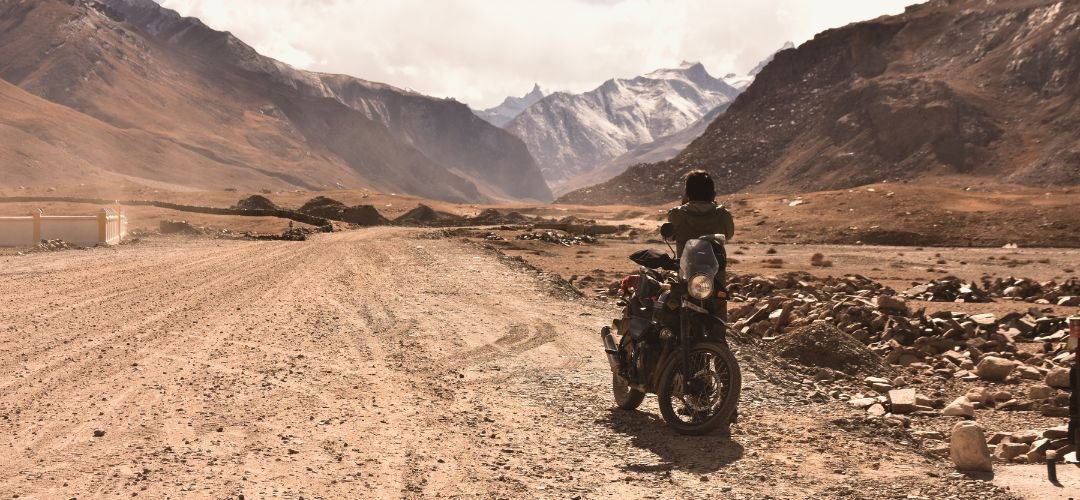
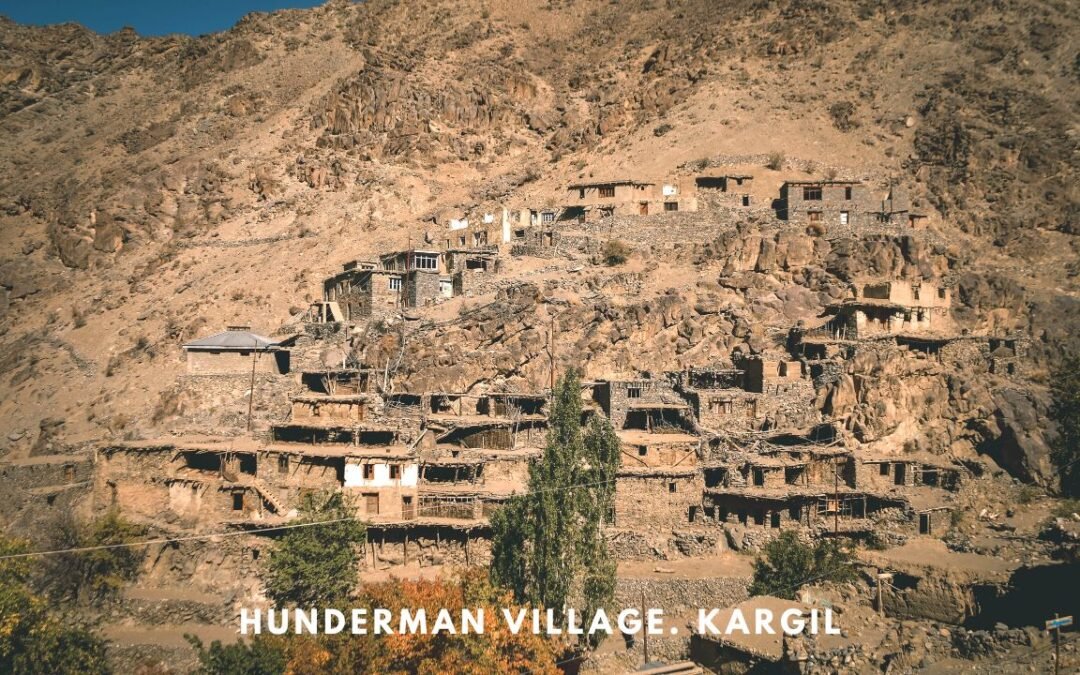
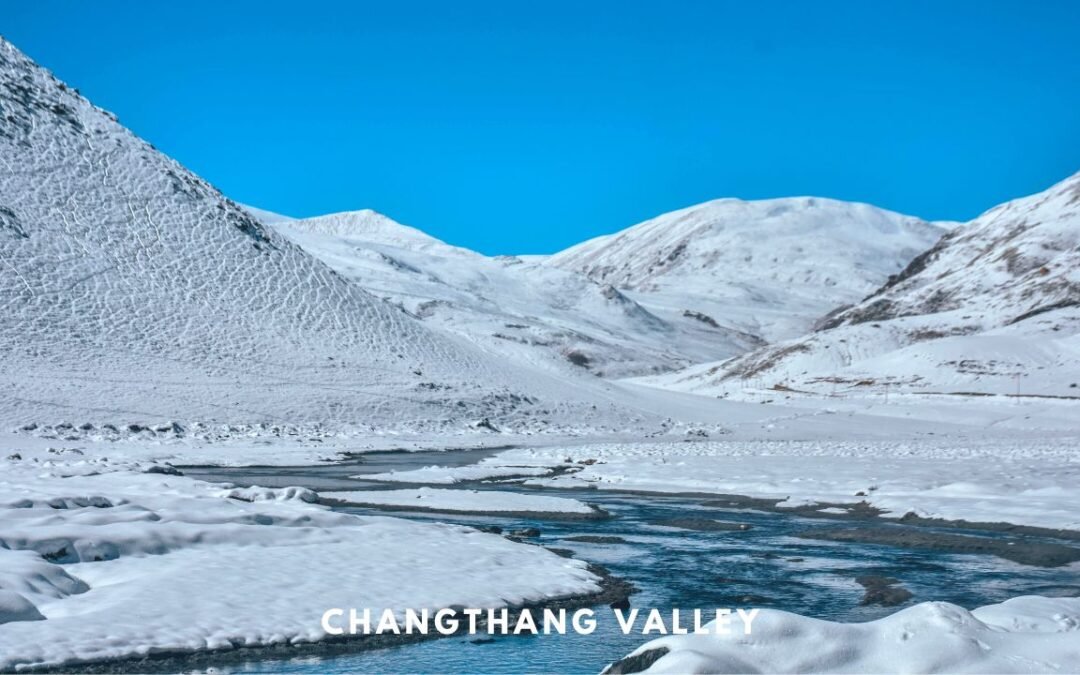
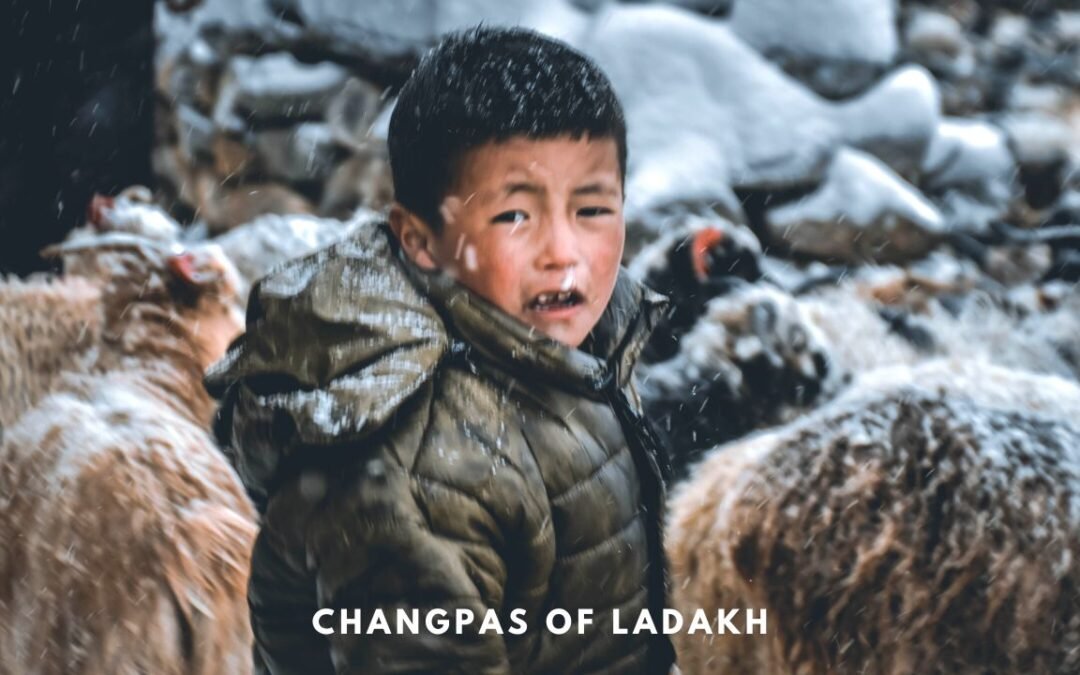


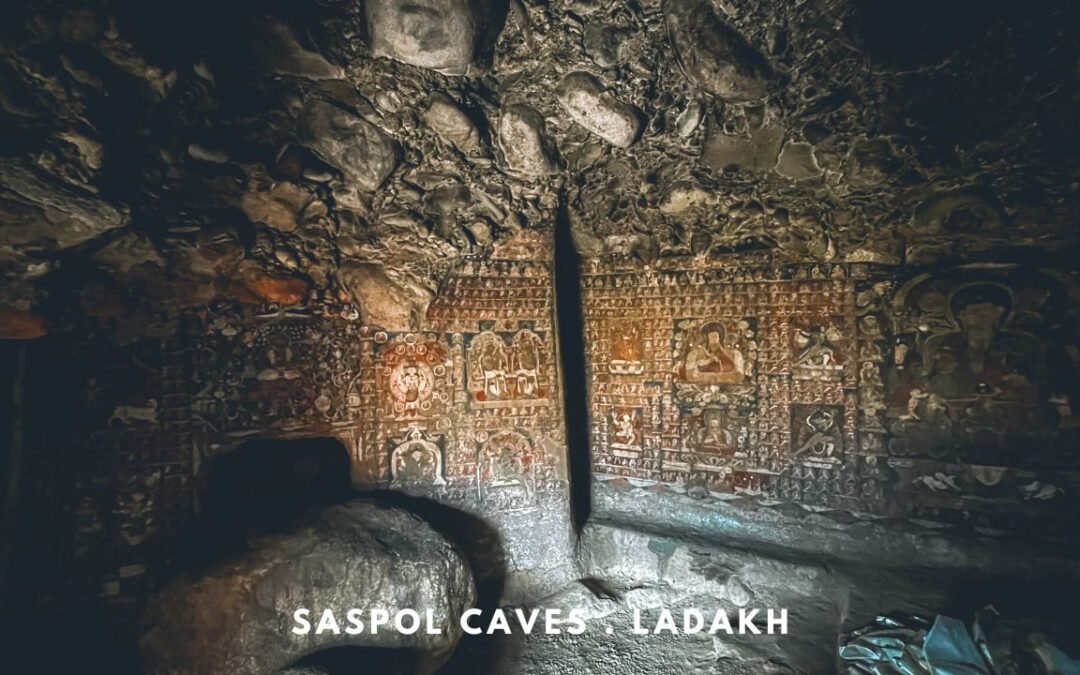

Mind boggling photos, AA. What camera did you use?
Thank you so much! These pictures were taken by Nikon D7200.
Beautiful post. It’s my dream to visit zanskar valley via kargil and padum. Am 63 (bypass done 18 yrs back). Am I still eligible to visit zanskar, kargil and padum ?? Am from Chennai. Can you give me a small itinerary ?? Thanks.
Whether you can visit Zanskar depends on your health. Acute Mountain Sickness is a reality in Zanskar area. It is better to take advice from your doctor before making such a trip. All the best and take care!
Very informative post, beatiful picyures as well,planning to travel Zanskar this year in September,let’s hope for the best
Thank you for your comment. Hope you have a great trip to Zanskar. Do let us know how it went.